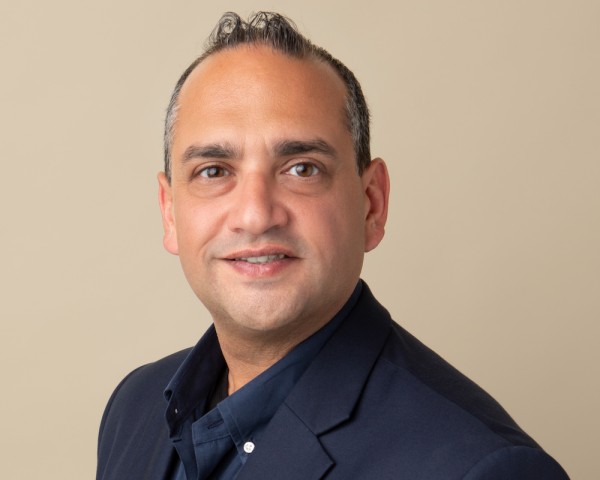The latest census shows that the number of Americans over 65 has increased 34% over the last decade. Thanks to COVID-19, the economy and various other factors, more and more of this demographic are choosing to age at home. While some thrive, many have physical and mental health challenges that burden those who care for them.
My Story
I experienced the challenge of caring for a loved one with a debilitating illness when my mother-in-law was diagnosed with stage four lymphoma. My wife and I decided to care for her ourselves, allowing her to remain in familiar surroundings. While the care was a labor of love, we had to give so much of ourselves that it felt as if our lives were crumbling down around us. In many ways, they were.
Searching for hope, I stumbled across a self-assessment tool designed by researchers at the University of Wisconsin. I took it, thinking it would probably just recommend I place my mother-in-law in hospice care. Imagine my surprise when it advised marriage counseling because my risk factor for burnout was the toll caregiving was having on my marriage. The researchers identified a church just three blocks from our house that offered free family counseling sessions on Saturday mornings. The relatively simple, free solution gave us the strength to provide my mother-in-law with the care she needed while preserving our sanity and our marriage.
My family is not alone in this experience. One in four Americans is caring for a loved one with a debilitating illness or other special needs. COVID-19 amplified the problem. People were afraid to leave their loved ones, especially the elderly, in congregate living settings, such as nursing homes or assisted living facilities.
As an entrepreneur, I saw an opportunity for more people to benefit from the solution I found via the university online tool. In developing a solution, my goal was to get to the root cause of caregiver burnout rather than providing temporary relief.
During the development of the TCARE solution, it became clear that support for caregivers is usually discussed in the insurance industry in terms of providing homecare, respite care or placement in a facility. The hundreds of primary caregivers we've interviewed also tend to think about support that way because they usually don't know what other options are available. However, a care receiver can often benefit from staying in their home longer and being in close contact with loved ones and familiar surroundings.
See also: Solving Life Insurance Coverage Gap
Solving the root problem of addressing caregiver burnout offers tremendous benefits for both the care receiver and the caregiver, and the caregiver doesn't feel as if they're letting their loved one down. While the lives of caregivers may be significantly altered, with the right support they don't have to feel as if they're being destroyed.
Addressing Insurers' Needs
To fully assess caregivers' needs, we created a motivational interview process. We identified that working with insurance companies would help us reach the most people in the most productive way. Partnering with organizations like RGAX, we were able to explore how preventing caregiver burnout would allow insurers to improve their cost structure by decreasing use of long-term care and delaying placement in a nursing home or assisted-living facility.
We didn't want to increase the burden on case managers, as they already have enough on their plates. So, once we know who the primary caregiver is, we partner with insurers to do outreach, letting customers know they're eligible to use the TCARE service at no cost to them. If they agree, we conduct a roughly 25-minute interview that gets to the root cause of burnout and assigns a score to the individual's risk. In collaboration with TCARE's AI and machine learning technology, the TCARE specialist will create a care plan and identify interventions and local and virtual resources, many available at no cost.
See also: The Doctor Is in Your Device
After the initial counseling session, caregivers are sent weekly automated text messages to see if there has been a change in their caregiving situation. If there has, our system alerts the TCARE specialist to reach out to the caregiver and adjust the care plan as needed. These alerts facilitate crisis prevention rather than crisis intervention.
Real World/Real Problems
One client, for instance, was struggling to provide the care her mother needed as she suffered from dementia. She was taking considerable time off work to provide for her mother's basic needs, which was taking a toll on her career. When she was laid off, and family financial resources grew strained, she reached out to a TCARE specialist, who let her know that Medicare could help her pay for some of her mother's basic needs. The specialist set her up with weekly food deliveries and transportation services to help get her mother to and from her weekly appointments.
Another example is a woman whose husband died by suicide, leaving her to care, alone, for their child with special needs. The day-to-day struggle became overwhelming, and she started having suicidal thoughts herself. When she reached out to TCARE, the 25-minute interview became a two-hour conversation. She was in the red zone and needed someone to talk to. After taking care of the woman's immediate mental health needs, the specialist set her up with respite services, which include overnight services, so that she could have the time she needed for self-care. The specialist connects with her regularly to make sure she is stable and finding time to take care of herself.
A Problem That Demands a Solution
With more people living longer, the number of those caring for a loved one with special needs will likely increase. The caregivers will need all the care we can give them.






